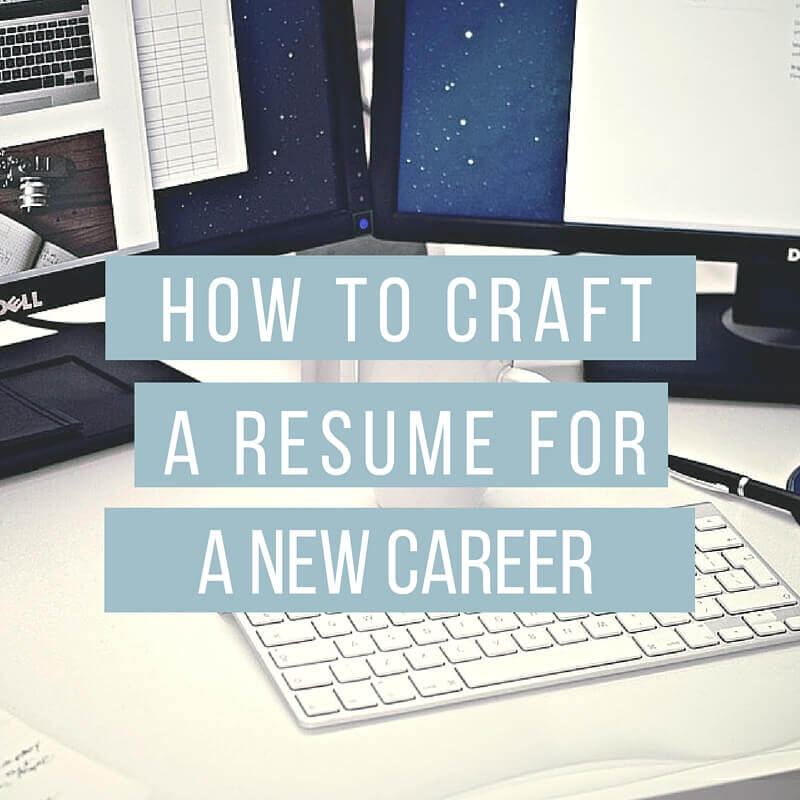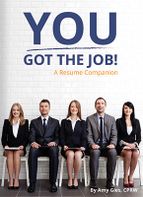
Switching careers can be a terrifying task, and thinking about how to make your resume work for your new career path can be even scarier. But, writing a resume for a new career doesn’t have to be terrifying. As long as you put the time in and do the research, crafting your new resume is very doable.
Don’t Use the Same Resume
If you’re pursuing a new career, it’s important to rework your resume to match your new career goals. If you’ve been a customer service representative your entire life and now decide you want to go into web design, obviously your resume will need a makeover. Things that were important to your customer service career can be reworked to align with desired skills sets in the world of designing websites.
When rewriting your resume, be sure to think about the position you are applying for and what you hope your resume will convey to a hiring manager. Come up with new objectives that match with the new career you are pursuing.
Make It Relevant
Make sure all information included in your resume is relevant to the new career and industry for which you’re applying. Eliminate information that is no longer relevant, as it won’t add any value to your resume and can be distracting. Make sure your achievements are relevant to your new job goals and new objectives.
Research, Research, Research
Research is key when reworking your resume. To fully understand what will be expected of you and what future employers want to see, you’ll need to understand what skill sets and functions are important for the specific position for which you’re applying. Speak with people in the field, study job descriptions and roles, and learn all you can about your new industry.
Learning about the skills and qualifications that are important for your new career will help you tailor your own skills to the new position. It’s important that you customize your transferable skills to the specific job you’re pursuing, and exclude ones that are no longer relevant.
The same goes for qualifications. What qualified you to be a baker is not going to be the same thing that qualifies you to be a web designer. Researching the industry will help you have a clear focus for your resume so that you know what to include and what to center your experience and skills around.
Find the Right Keywords
Keywords are important because they are how hiring managers search for candidates in resume databases. Job boards and sites like CareerBuilder and Monster use automated search tools to collect keyword data from applicants and match them to open positions. Having the right keywords in your resume is crucial, and the keywords necessary for your new career will be different than ones used for your previous jobs. Take the time to think about what keywords are important for your new industry and be sure to incorporate them into your resume wherever possible. If you’re stuck, browsing through job descriptions on job board sites and highlighting terms that describe the job or necessary skills is a good place to start. It will help you get an idea of what words are important enough to be incorporated in your resume.
Think About Your Experiences
When including your experience on your resume, it’s important to make sure it matches with the position you’re applying for. Of course, you might not have a lot of experience with web design if you’ve been a baker your entire life. But, chances are, you have at least some experience with it or else you won’t be making the career change.
You don’t have to include just professional experience in your resume. For a career change resume, it’s actually a good idea to include non-work related experiences. Include extracurricular activities that relate to your desired position, for example: volunteering, professional association memberships, and internships, to show hiring managers the full scope of relevant experience you have to offer.
It’s About Branding
Branding yourself is important. When writing your new resume, ask yourself: How do you want to be perceived by potential employers and hiring managers? Once you have the answer, you can go about branding yourself and tailoring your resume to your new career. Above all else, your resume should tell the story of you and paint a picture of who you are.
If you’re still unsure of how to go about crafting your resume for your new career, Silicon Valley resume writing service Capstone Resume Services can help! With years of experience in resume writing, our Certified Professional Resume Writers will have a one-on-one consultation with you to better understand your experience and your new career goals.
Contact us today to request a consultation, and take the first step toward your new career!

